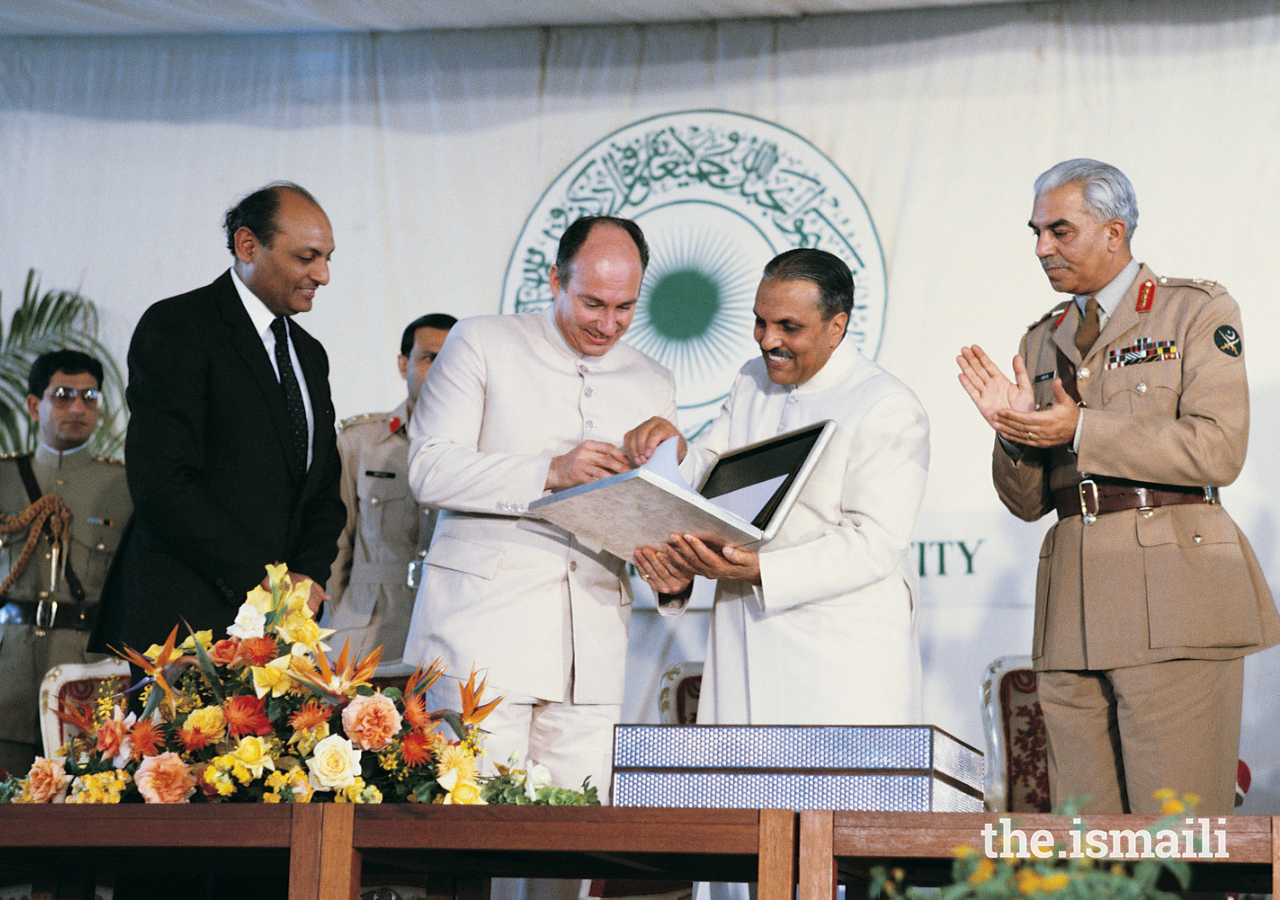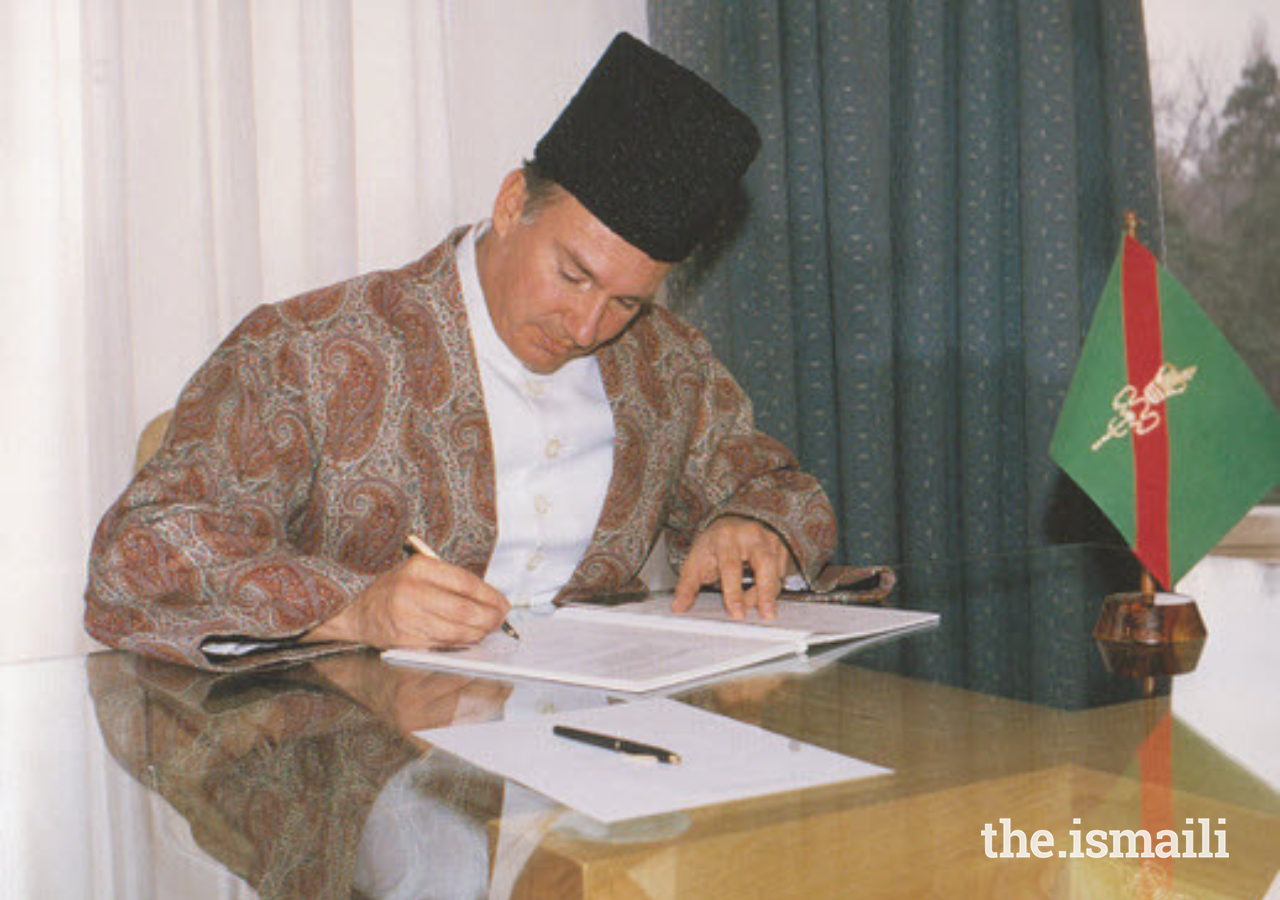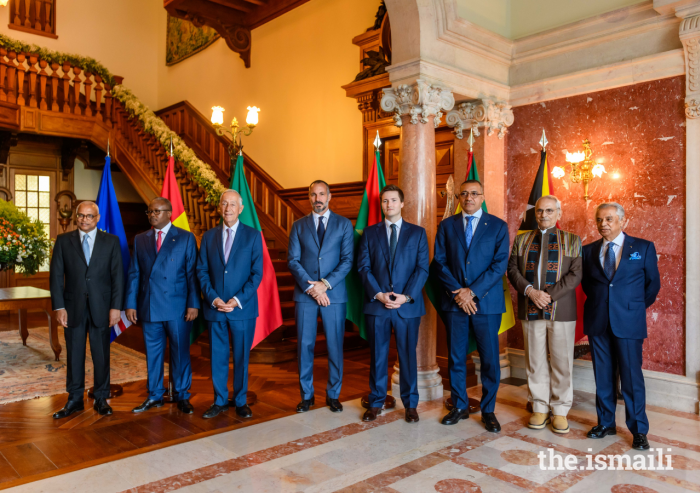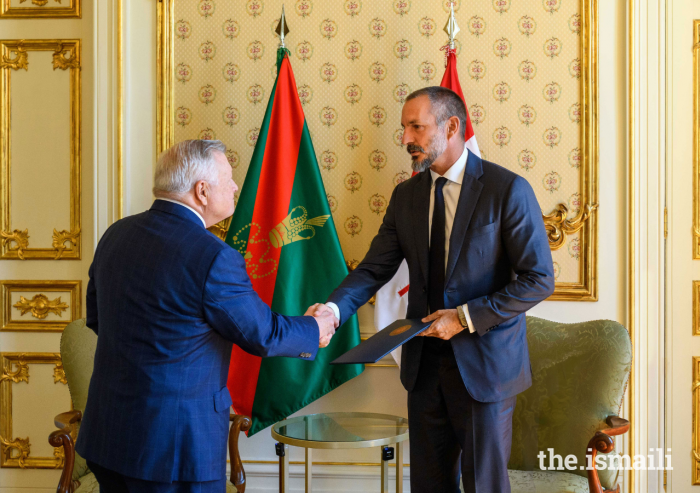From 1977, the world began to experience great technological achievements: the birth of the first test tube baby, the sale of the first Apple Macintosh computer, and the first permanent artificial heart implant on a human. Political upheaval continued with the Revolution in Iran and the Soviet invasion of Afghanistan.
Responding to these challenges, Mawlana Hazar Imam continued to establish new institutions to enable the progress of the Jamat and wider society. The Aga Khan Award for Architecture was established in 1977 to identify and encourage building concepts that successfully address the needs and goals of societies in which Muslims have a significant presence. The Award’s first seminar was held in early 1978 at Aiglemont. In his opening remarks, Mawlana Hazar Imam noted that:
“….there is no such thing as one type of Muslim environment or one type of Muslim building. We are enjoined to help the needy, the sick, and the poor of whatever colour or origin. I think, therefore, we must assist in the challenging, but fundamentally important task of demanding, from our architects, an environment in which we can live, work, and practice the precepts of our faith harmoniously and to the fullest.”
The award is guided by the Islamic ethic of care for the most vulnerable in society; the belief that Allah has made us trustees over His creation; and that we have a responsibility to leave the world better than when we inherited it.
A second institution established in 1977 was The Institute of Ismaili Studies (IIS), with Hazar Imam expressing his hope that it would “become one of the major institutions of the Jamat, growing into an internationally recognised centre.” The IIS was founded to contribute to academic discourse in the field of Islamic Studies, aiming to address misperceptions of Islam, including of Shia Muslims in general and Ismailis in particular. It also sought to benefit the Jamat through the development of quality curriculum materials and training religious education teachers. The IIS builds on the historic traditions of learning, including the legacy of Al-Azhar University, founded by the Fatimid Imams a thousand years earlier.
In September 1979, Mawlana Hazar Imam attended the foundation ceremony of the Ismaili Centre in London and spoke of the building as symbolic of a growing understanding of Islam. This would be the first in a global network of Ismaili Centres.
A year later, he initiated the construction of the Aga Khan Hospital and Medical University in Karachi. AKU now has campuses in Asia, Africa and Europe.
On 11 July 1982, Jamati leaders paid homage to Mawlana Hazar Imam at Aiglemont to mark the auspicious occasion of the Silver Jubilee of Hazar Imam's accession to the office of Imamat. It was a time of celebration for the global Jamat. During the Silver Jubilee year, Hazar Imam blessed a number of Jamats with Deedar. He spoke of the importance of faith, of the balance between din and dunya, of education, meritocracy, and the role of the intellect. He attended the foundation ceremony of the Ismaili Centre Burnaby and received the Charter of the Aga Khan University from the President of Pakistan.
At the inauguration of the Aga Khan University in 1985, Hazar Imam spoke of the relationship between intellect and faith. He noted that, “the man of faith who fails to pursue intellectual search is likely to have only a limited comprehension of Allah’s creation. Indeed, it is man’s intellect that enables him to expand his vision of that creation.”
The Ismaili Centre London was officially opened in April 1985, and the Ismaili Centre Burnaby in August 1985, each respectively by the Prime Minister of the time. Today, the six Centres around the world provide spaces for the Jamat’s search for spiritual enlightenment, but also help to build partnerships in the communities in which the Jamat lives.
On his 50th birthday — 13 December 1986 — Mawlana Hazar Imam marked a significant moment in the Jamat’s modern history, as he ordained the first global Ismaili Constitution. This would go on to become an important platform upon which the global institutional structure was built, and one that was particularly timely, given the imminent collapse of the Soviet Union and the period of globalisation which would soon follow.










